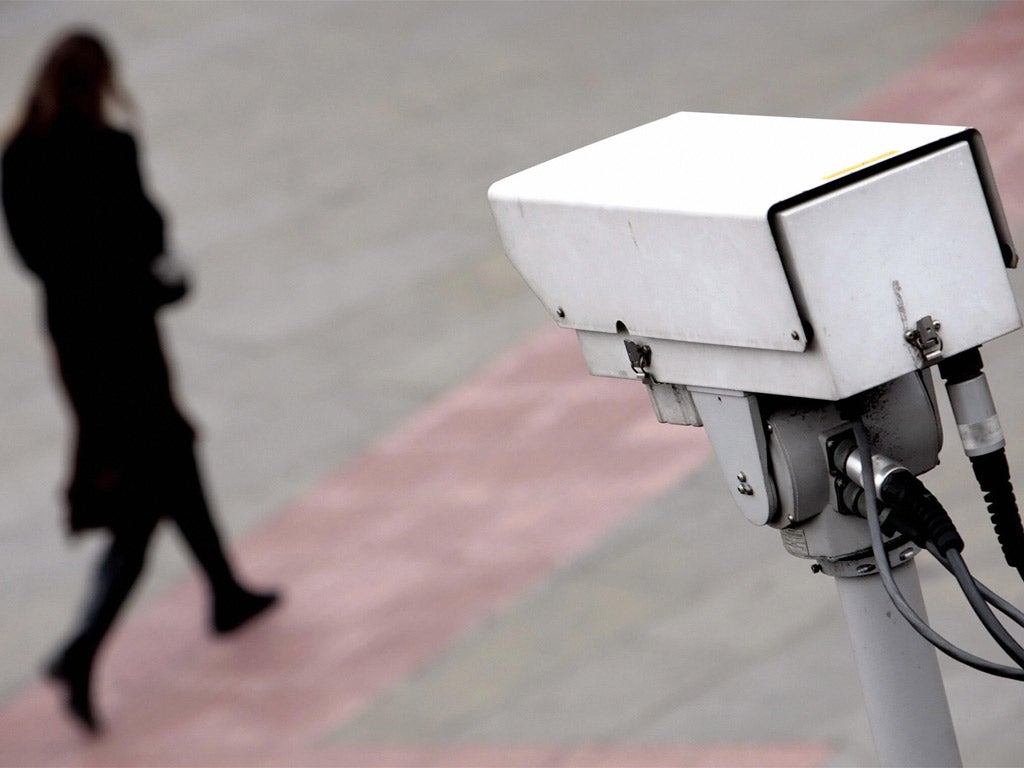Machines are judging you: Facial recognition technology set to be used for marketing
Technology is already being used to work out how you should be treated as a customer based on where you live but is facial recognition technology being used to decide which adverts should be shown to you a step too far?

Your support helps us to tell the story
From reproductive rights to climate change to Big Tech, The Independent is on the ground when the story is developing. Whether it's investigating the financials of Elon Musk's pro-Trump PAC or producing our latest documentary, 'The A Word', which shines a light on the American women fighting for reproductive rights, we know how important it is to parse out the facts from the messaging.
At such a critical moment in US history, we need reporters on the ground. Your donation allows us to keep sending journalists to speak to both sides of the story.
The Independent is trusted by Americans across the entire political spectrum. And unlike many other quality news outlets, we choose not to lock Americans out of our reporting and analysis with paywalls. We believe quality journalism should be available to everyone, paid for by those who can afford it.
Your support makes all the difference.If you're on the wrong side of the class divide, recent advances in retail tech will make for depressing reading. For example, some years ago Britain's class system was automated. Now, as you shop, machines can discriminate against you far more efficiently.
When you phone a big retailer, a machine decides what level of service you get, depending on your status. The software that makes this social judgement switches all incoming phone calls. The system identifies your phone number and cross-references that with its customer database. It then discovers, having looked up your address, what class of person you are and will route your call according to the class of service it thinks you merit.
If you live in, say, NW1 you will be deemed worth giving top service to. So your call will be routed to a top level customer service in company HQ. Your inquiry will be handled by a well-trained experienced member of staff who has the decision making powers to provide instant solutions to all your problems. They can use their initiative to, say, compensate you with a free gift if there was a glitch on delivery. But if your post code indicates you live in, say, a council estate in Croydon, then your call is handled differently. As soon as it sees a downmarket postcode, the PBX software will route the call to a cheaper call handler. You are the sort of customer who only justifies a level of service that's been outsourced to an agency on the other side of the world, where minimum wage call centre staff read from a script in their second or third language.
Sometimes the technology doesn't even need to hold any personal details on you. Some systems can judge you on their own criteria. For example, there are systems that watch you as you enter a shopping centre. Their cameras capture your image, which is then analysed by a computer. Based on its knowledge of humans, the machine will guess your age, sex and weight, by measuring your dimensions. The machine then cross checks with a database about what your tastes might run to and calculates the most apt advertising campaign to be aimed at you. It then retrieves these adverts from a video server and, liaising with the shopping centre cameras, contrives to play these adverts on every screen that you walk past. So if I was walking around a shopping centre, pie adverts might appear on every giant plasma display screen I walked past. This could be considered quite insulting, let alone an invasion of my privacy. But after three of these adverts, I would probably succumb to temptation.
The fact that all this in-your-face marketing works has only encouraged more invasions of privacy. That was the thinking behind customer relationship management (CRM) systems. Marketing gurus actually believe that we all want a relationship with a big company.
Maybe it's a generational thing, but I don't want to have 'conversations with brands' or with anyone who can afford a CRM system. Retailers with CRM create the sort of one-sided pestering relationship that, in other circumstances, would be grounds for a restraining order.
CRM never brought any benefits to the customer any more than buy-one-get-one-free, or BOGOF, offers gave people cheap food. After a Which? survey in May analysed over 700,000 prices it's pretty widely understood that these BOGOF 'discounts' are nothing of the sort. Even the Office of Fair Trading recently made noises about issuing guidelines.
So instead, retailers have changed to using social CRM as their method for influencing the public. The theory is that social media 'generates a rich stream of highly detailed social data which when harnessed and incorporated into existing relationship-management systems can drive marketing communications into a new phase'. In practise, this probably means infiltrating your social groups and trying to influence which products you buy.
Now, according to the IM Group, the retailers will no longer use social data to recommend stuff to you based on what you've previously bought from them. The new upsales are based on a behavioural and social understanding basis. So the retailers monitor social network trends, moderate online blogs, tweets, your location and conversations you have.
It gets worse. Biometric facial recognition technology, like that being developed by NEC, can also add to the information that retailers hold on an individual, says the IM Group.
Sometimes, I despair that technology has fallen into the wrong hands.
Join our commenting forum
Join thought-provoking conversations, follow other Independent readers and see their replies
Comments